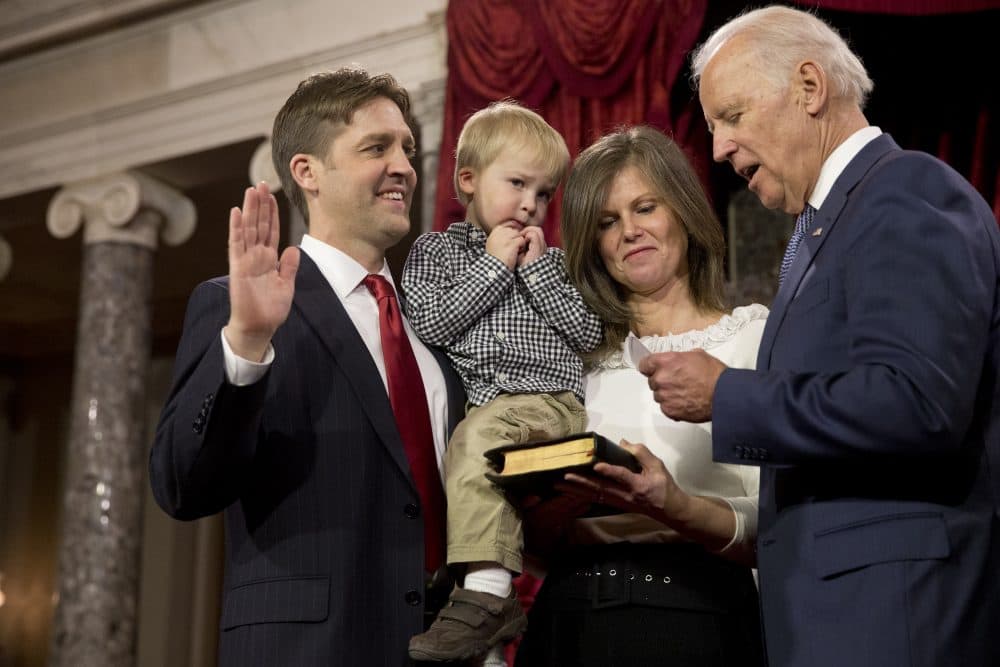Advertisement
Commentary
Young Americans Stuck In Adolescence? Maybe Adulthood Is The Problem

Republican Sen. Ben Sasse of Nebraska has written a new book, "The Vanishing American Adult: Our Coming Of Age Crisis And How To Rebuild A Culture Of Self-Reliance," which claims that our nation is experiencing a “collective coming-of-age crisis without parallel in our history.” As he puts it, “Our kids simply don’t know what an adult is anymore — or how to become one.”
Sasse is far from the first person to point out that contemporary Americans are not growing up in recognizable ways. The last decade has seen a surfeit of articles and books on the subject, including:
“Adulthood, Delayed: What Has the Recession Done to Millennials?”
These titles are drawn from the glut of media reports that fixate on the increasing numbers of 20-somethings living at home with their parents since the economic downturn.
But this “crisis” is not an alarming new 21st-century phenomenon, as these sources claim.
Social critics have long worried that young people are not working hard enough to properly advance to the next stage of life. For example, in his popular 1847 book, "How To Be A Man," clergyman Harvey Newcomb sought to teach “boys, or, if you please, young gentlemen” how to grow up. Like Sasse, who sees “productivity as essential to human flourishing," Newcomb’s stringent instructions center heavily on work: “We may safely conclude, then, that whoever despises labor is a fool; for he despises the only thing that can make him A MAN.”
The very fact that becoming a man requires instructions reminds us that adulthood is a cultural status rather than a biological inevitability; one has to learn how to perform adulthood in ways that are legible.

Such hand-wringing obscures the fact that “adulthood” has been narrowly defined and available exclusively to the most privileged Americans throughout much of our history. That is, for hundreds of years, no amount of labor or initiative gave women or people of color access to the rank of adulthood. Consider the fact that women were deprived of the right to vote for all of the 19th century and thus unable to become full citizens. In other words, women could not become adults in a political sense. Indeed, G. Stanley Hall, the influential psychologist and first president of Clark University, articulated the mainstream attitude toward female maturity when he observed that “woman at her best never outgrows adolescence.”
Likewise, the institution of slavery made “adulthood” — as defined by independence or by political rights — completely unattainable for enslaved people. Frederick Douglass famously lamented, “I could grow, though I could not become a man, but must remain, all my life, a minor — a mere boy.” In our own era, racism continues to thwart the life stages of people of color, making them less likely to achieve longevity and depriving black boys of the opportunity to be seen as children.
This historical context helps us see that adulthood has never been a coherent or stable status; it has always been a privileged position, one that has historically been reserved for white men. If we are really experiencing a “coming-of-age crisis,” we might look to systemic inequality before wondering whatever happened to personal grit and resilience.
As sociologist Jennifer Silva has demonstrated, the economic consequences of capitalism have made working-class existence ever more precarious, putting the conventional markers of adulthood out of reach. Owning a home, getting married and climbing up the employment ladder are no longer available routes to maturity for many Americans. “Adulthood” — defined in these conventional terms — remains a status cordoned off exclusively for the elite and for those who comply with the mandates of capitalism.
Our culture does seem to be redefining adulthood, but this is certainly not the first time this status has been under revision, nor is it necessarily a problem. On the contrary, we might expand our sense of what counts as adulthood. Individuals who prioritize cooperation over competition, who must rely on others for bodily or financial support or who choose life narratives that do not align with age-based cultural expectations are deemed immature. In other words, “adulthood” remains a term heavily inflected with a specific set of values, individualism foremost among them.
Rather than bemoan his children’s excessive screen time as a sign of our culture’s “coming-of-age crisis,” Senator Sasse would do well to use his position in the government to address how systemic racism, sexism and other structural inequalities continue to make the markers of maturity unavailable to a large portion of the American population.
